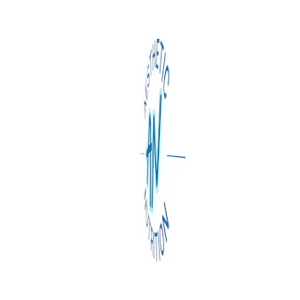Take The Right Protein
When it comes to losing weight, a high-protein diet can be extremely effective.
Lower levels of hunger hormones and cravings, enhanced fullness, and even more calories expended are some of the benefits.
With so many possibilities for increasing protein intake, determining the ideal form of protein for weight loss can be tough.
Studies show that eating a high-protein diet can help you lose weight without limiting your calories or other nutrients.
Furthermore, high-protein meals have been demonstrated to aid in the reduction of body fat, particularly around the abdomen, as well as the enhancement of lean muscle mass.
Why Should You Be Concerned About Protein?
Protein is utilised to make skin, organs, tendons, muscles, neurotransmitters, hormones, enzymes, and a variety of tiny molecules that serve a variety of roles. As a result, living a life without protein can be difficult.

Proteins are made up of microscopic molecules called amino acids, some of which your body can create and others of which you should acquire from your regular diet. These are referred to as necessary amino acids.
How High-Protein Diets Help You Lose Weight:
# Maintains your fullness for a longer period of time: Protein is extremely satiating, so you'll feel fuller for longer. This can result in an automatic calorie reduction.
# Reduce snacking: A high-protein diet has been related to fewer nighttime snacking urges.
# Increased protein intake has been demonstrated to have a higher thermic impact, which means more calories are burned. This means it can increase your daily calorie expenditure by up to 80 to 100 calories.
# Change your weight hormones: Protein has been demonstrated to lower ghrelin levels and increase appetite-suppressing hormones.
There are many protein sources available, making a high-protein diet simple to follow.
Natural protein from foods and supplementary protein like from The Beach Body gummies, are the two main forms of these sources.
It is critical to boost your protein consumption when trying to lose weight. The source of the protein appears to be less relevant.
It is advisable to increase your protein intake by eating more whole meals. Whole foods are more nutrient-dense and less processed than protein supplements.
Protein Rich Food:
1. Beans
Black beans are frequently a low-cost source of protein. Black beans may be cooked in a variety of ways, making them an extremely versatile ingredient in the kitchen.
2. Corn
Yellow corn has around 15.6 g of protein per cup. Corn also contains a significant quantity of fibre and minerals, including calcium.
3. Potatoes
Potatoes have a bad rap for being a starchy carb, but they're actually high in nutrients, including protein. A medium potato, skin on, has little over 4 grammes of protein. When preparing a potato, individuals should be cautious since the extras that are frequently added to potatoes might increase the calorie count.
4. Broccoli
Raw broccoli includes around 2.6 g of protein and a variety of elements such as folate and potassium in one cup. This nutrient-dense vegetable offers only 31 calories per cup.
5.Cauliflower
Cauliflower is high in protein and low in calories. Cauliflower offers 27 calories and 2 grammes of protein per cup.
6. Guava
Guava is a tropical fruit that isn't always readily available. Guava is one of the most high-protein fruits on the market. It also contains extra minerals like vitamin C.
7. Peas
Protein, fibre, and other elements are abundant in peas. Peas are a low-cost, easy-to-find ingredient that may be utilised in a variety of dishes.
8. Chickpeas
Chickpeas are a high-fiber, nutrient-dense vegetarian protein that helps to maintain heart and bone health. They also protect against cancer.
9. Quinoa
Quinoa is one of the few vegetarian protein sources that is complete. Quinoa is a fantastic alternative for vegetarians and vegans since it includes all 11 amino acids required to produce a complete protein.
Important Instructions for a Few People
Several protein-instruction sources include numbers for both adult males and women. Some people, however, may require more or less to help them grow or deal with a medical problem.
Although a nutritionist or doctor should be consulted to determine your appropriate protein consumption percentage, the following guidelines may be helpful:
# Protein consumption must be reduced in people who have renal or liver illness.
# Protein is required by older persons more than by middle-aged people.
# Lactating and pregnant women need more protein.
Eat wise, eat healthy and don’t forget to exercise regulary while consimg the right food and 2 gummies for effective weight management.



